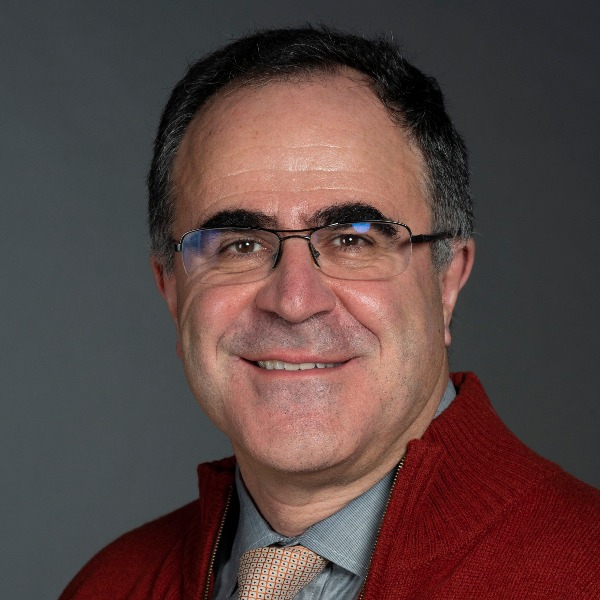Throughout this series of talks with different figures from the EuMIGS network, we would like to introduce some of the people behind EuMIGS. Today’s guest is Gianni D'Amato from the University of Neuchâtel.
Would you like to introduce yourself?
I am the head of the Swiss Forum for Migration and Population Studies in Neuchâtel and I am also directing the NCCR-on the move, a network that groups more than 60 researchers of all levels in different Swiss universities (and some abroad).
Gianni, you are Professor of Migration and Citizenship Studies at the University of Neuchâtel, how did you get there?
Academic curriculums are often very individual and, as in my case, full of surprises. I studied sociology, economic and social history, and political theory in Zürich and worked in parallel as a teacher in a vocational school. After my diploma, I moved to Constance and shortly after to Potsdam. This was shortly after the fall of the Berlin Wall and was incredibly exciting. I felt like a pioneer. There I wrote my Ph.D. on citizenship in political theory (1994-98).
Did you study abroad as a student? In what way have experiences abroad influenced your life?
Potsdam and Berlin-Kreuzberg, where I used to live, were probably the most marking years of my life. Germany is an intense country with a dramatic history, and this can be observed in particular in its intellectual and cultural life. And Berlin as a lens was incredibly insightful. As an addicted news reader, my mornings in the cafés (which started at that time very late, at 10 am) were an extra crash course in debating political and cultural issues. Later on, to be precise two years ago, I had my first sabbatical and went to Florence. For the first time, I lived a longer period in the country of my origin. The European University Institute in Florence is an extraordinary place, but not really Italy. You learn more if you become an informed observer of your neighbourhood and talk to ordinary people. Sports helps.
What brought you to the field of migration studies? What inspires you in your work in this field?
I started as an industrial sociologist and was interested in the transformation of modern societies. Politically, I was involved in the organized Italian community in Zürich and founded with others an anti-racist group. This is the reason why I tried to avoid migration issues academically. But ironically, if you are studying economic transformation, you cannot skip the issue of segmented migrant labour. It was Heinz Kleger, a lecturer and friend with whom I sporadically drank a coffee, who asked me to follow him to his chair in Constance and shortly after to Potsdam. There, I chose to focus on political rights and citizenship. Once terminated, I applied in Neuchâtel and was hired by Andreas Wimmer to become the Knowledge Transfer Officer of a huge research project on migration. That’s how it works, in retrospect you can never predict your career.
What made the University of Neuchâtel join the EuMIGS Network?
Internationalization is one of the major issues nowadays. I grew up in a closed minded world, at least this is how I felt it. Even the journey to Constance, at 45 minutes distance to Zürich, was a discovery. Since my PhD I regretted not to have been longer in other places. It is not only the books or libraries, but the teachers and the environment that are able to influence your views on things. The more you experience, the stronger the input for your reflections. I wanted the students of Neuchâtel to have this opportunity, too, and the long-term friendship with Andreas, Jens, Sophie, Ali, and Christine was an incentive to join the network.
If a EuMIGS student moves to the University of Neuchâtel, will she/he have the opportunity to attend a seminar taught by you?
Sure, we have a strongly political and historical profile in Neuchâtel (besides anthropological and legal approaches), and at my chair you would be confronted with “migration as a challenge to democracies” and “rights to have rights”, the famous Hannah Arendt remark. You see that my Potsdam-experience makes long waves.
Where would you go if you were a student applying for EuMIGS? Would you like to mention the reasons?
This is like the question in Roman Holidays: I would like to go to all places, since all of them are observing human mobility from the periphery. All our partners have their own spot on migratory related intellectual debates, although the history and the institutional setting as much as the economic situation may vary from one country to another.
What do you particularly like about EuMIGS? Do you have a favourite EuMIGS moment so far?
At my stage of career it is an honour, and I mean this, to construct institutions that allow younger scholars to start their careers. EuMIGS as the NCCR-on the move are such instruments that allow talented young students to go ahead. One of the favourite moments are the kick-off meetings with the fellows, the discussions with them, and the particular moments where you learn how young scholars see the world today.
What would you like to suggest to future generation EuMIGS students to get the most out of the programme at the University of Neuchâtel?
Do your readings and create friendships! The second may not give you credits, but they last longer, believe me. And use all the possibilities a huge project such as the NCCR-on the move offers.
Where do you hope to see EuMIGS in the next ten years?
As an established European exchange programme, institutionally set and well known, and maybe, if we are lucky, with more universities joining us.
Interview by Astrid Daiana Jessen

